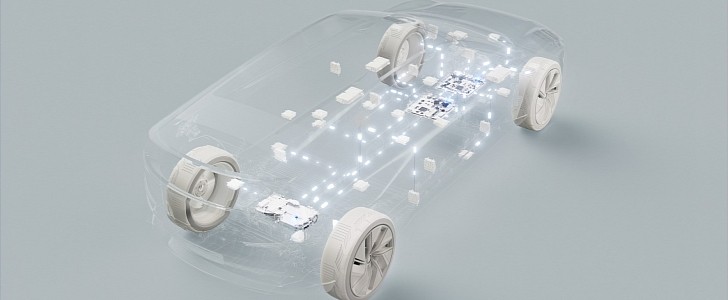Although unions such as IG Metall have already realized that software will make the most significant difference in the automotive industry, multiple companies still believe it’s all about the hardware. Volvo showed it learned its lesson well by announcing at the Volvo Cars Tech Moment event that it will develop its own OS (operating system). The Swedish automaker will partner with Google and NVIDIA to get there as soon as 2022.
That will be the year in which the company will present its first EV with the VolvoCars.OS and a dedicated electric car platform. This car should be the next generation of the XC90. Volvo will manufacture it at its Ridgeville plant, in the U.S., where the company will also produce the Polestar 3 for the American market. If you are curious about what it will look like, we’d bet on the production version of the Volvo Concept Recharge, which was also presented at Volvo Cars Tech Moment.
The VolvoCars.OS will be a mash-up of Android Automotive OS, QNX, AUTOSAR, and Linux. Although it has this many “donors,” Volvo said it will be a coherent software OS environment that will help the company achieve “faster and more flexible development.”
Also crucial to Volvo’s electric car strategy is migrating to a core computing model. Instead of having multiple ECUs (electronic control units) all around the car, the Swedish carmaker will concentrate all the vehicle’s electronic structure around three powerful computers. It is here that NVIDIA will play a massive role. As long as they do not offer computers that are wear parts, that will be a big win.
Volvo points to another advantage with core computing: it makes it easier for the automaker to separate software from hardware. In other words, Volvo can adopt new components that are more up-to-date instead of having to stick with a given ECU because of software incompatibilities, for example.
The VolvoCars.OS will be a mash-up of Android Automotive OS, QNX, AUTOSAR, and Linux. Although it has this many “donors,” Volvo said it will be a coherent software OS environment that will help the company achieve “faster and more flexible development.”
Also crucial to Volvo’s electric car strategy is migrating to a core computing model. Instead of having multiple ECUs (electronic control units) all around the car, the Swedish carmaker will concentrate all the vehicle’s electronic structure around three powerful computers. It is here that NVIDIA will play a massive role. As long as they do not offer computers that are wear parts, that will be a big win.
Volvo points to another advantage with core computing: it makes it easier for the automaker to separate software from hardware. In other words, Volvo can adopt new components that are more up-to-date instead of having to stick with a given ECU because of software incompatibilities, for example.






